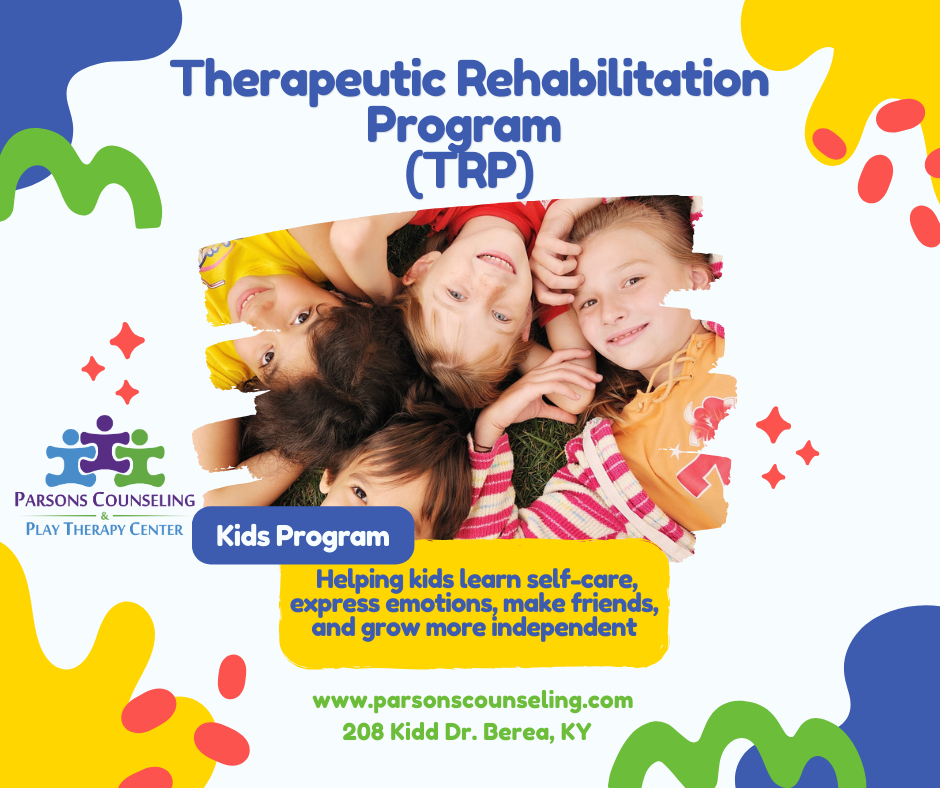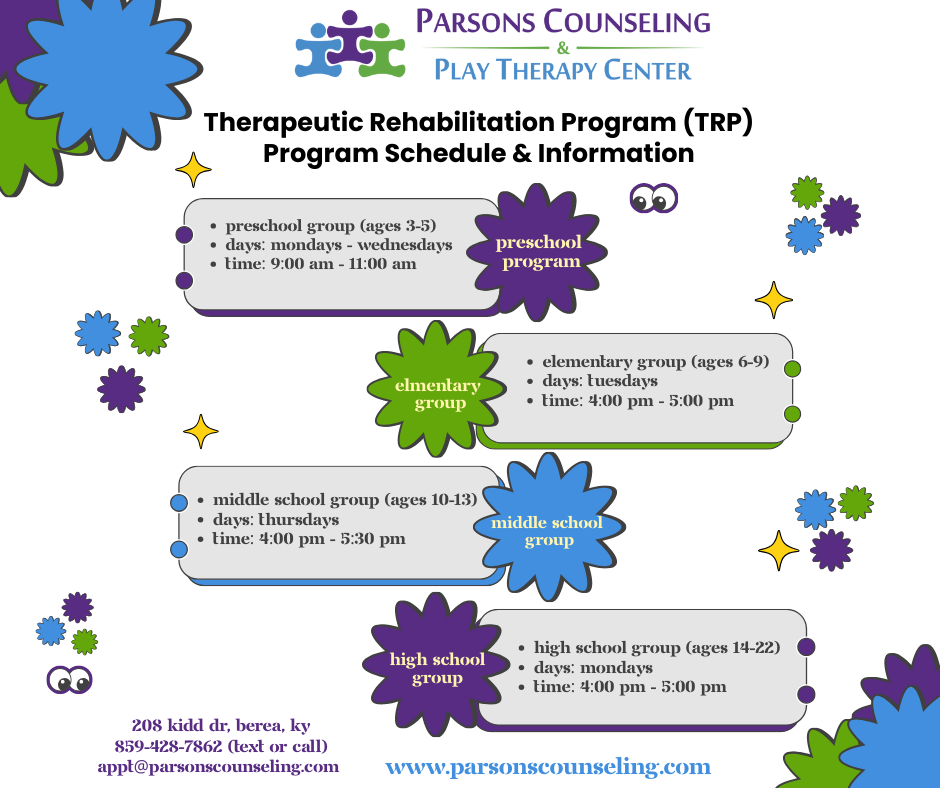Therapeutic Rehabilitation Program
Therapeutic Rehabilitation Program (TRP)
The Therapeutic Rehabilitation Program (TRP) at Parsons Counseling is a structured, skills-based service designed to help individuals with mental health challenges build the practical tools they need to live more independently. Unlike traditional therapy, TRP focuses on developing daily living skills, emotional regulation, crisis coping strategies, and social abilities through personalized, age-appropriate support. Whether you’re a child, teen, or adult, TRP provides a pathway to greater confidence, stability, and real-world functioning.
New and Former Clients
1. Complete the Request Services form and select Therapeutic Rehabilitation Program.
2. A member of our staff will reach out to schedule an intake session to evaluate for screening and admission to the TRP program.
Current Clients
1. Consult with your counselor on the appropriateness of TRP services.
2. If you and your counselor agree that these services are warranted, your counselor will complete an internal request for services.
For questions about the TRP program, contact us at 859.985.7862 or appt@parsonscounseling.com
School Year Schedule
- Pre School group: Monday – Wednesday 9:00 am-11:00 am
- Elementary School Group: Tuesday 4:00 pm-5:00 pm
- Middle School Group: Thursday 4:00 pm-5:30 pm
- High School group: Friday 4:00 pm-5:00 pm
Real-Life Skills for a More Independent Life
Parsons Counseling offers Therapeutic Rehabilitation Program (TRP) services—a hands-on, skills-based program that helps individuals with emotional or mental health challenges build practical tools for daily life and long-term independence.
What is TRP?
TRP is rehabilitation, not traditional therapy. While therapy focuses on reducing symptoms, TRP teaches everyday life skills like managing emotions, handling crises, maintaining routines, and building relationships—empowering individuals to function more independently.
Who is TRP For?
- Children and teens with emotional disabilities
- Individuals transitioning from other levels of care
- Anyone wanting stronger daily living or coping skills.
- Adults with severe mental illness
What Skills Are Taught?
- Daily Living: Self-care, routines, meal prep, money skills
- Emotional Regulation: Managing emotions, stress, and triggers
- Crisis Coping: Safety planning, de-escalation, support systems
- Social Skills: Communication, boundaries, conflict resolution
- Self-Monitoring: Recognizing symptoms, tracking progress
Flexible Program Options
- Group and Individual Sessions
- Age-Specific Tracks for kids, teens, and adults
- Weekly and After-School Times Available


